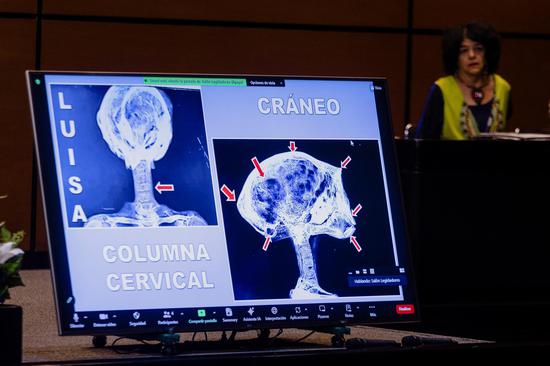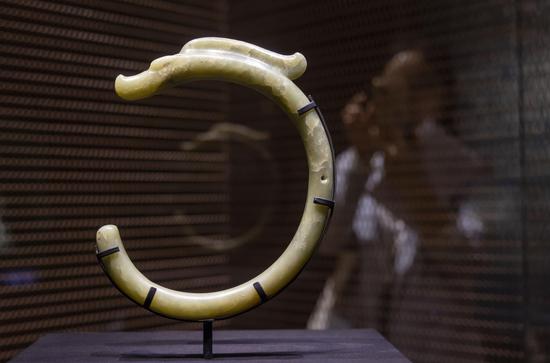Situated in Li county in Northwest China's Gansu Province, commonly seen as the birthplace of China's Qin Dynasty (221BC-206BC) culture, a local archaeological site has recently been found to have been a large-scale architectural complex used for sacrificial ceremonies.
The Sijiaoping Ruins are located on an excavated flat platform on the top of a mountain in the county. The ancient man-made platform covers an area of 28,000 square meters and was encircled by a rammed earth wall. At the center of the site is a square platform with annexes on either side of it.
Archaeologist Wang Meng told the Global Times that the entire configuration of the site delivers a "sense of grandeur and solemnity." The symmetrical and square designs are often seen in many ancient Chinese designs, especially in high-grade and royal architecture. The "symmetrical" design is particularly common as it embodies Chinese people's belief in harmony.
Exquisitely made ancient objects like eaves tiles, also known as wadang, decorated with cloud patterns and tiles featuring a rope pattern were found scattered inside the ruins. Those artifacts gave experts the clues they needed to narrow down the specific time period of the site.
Hou Hongwei, the lead expert of the Sijiaoping archaeological project, said that the tiles and eaves tiles were "very similar" to the ones discovered in the mausoleum of the Qin Dynasty Emperor Qin Shi Huang.
"According to the production techniques and decorative details on those unearthed building materials, we can preliminarily identify the Sijiaoping site as a high-level ceremonial building from the Qin Dynasty," the expert said.
Besides the visible structures, the Qin ceremonial site also contained a half-crypt space. The space was covered with tiles on both the walls and floor. Experts predict it was once a water pool. The pool was most likely closely tied to the Qin people's "belief in the virtues of water," Hou remarked.
While the function of the Sijiaoping ruins is only recently identified, their importance had already been noticed by scholars when the site was first discovered in 2019.
The Sijiaoping site was discovered near another site, the Dabaozi Mountain site, which is also in Gansu Province. The Dabaozi Mountain site is a tomb cluster covering some 18 square kilometers.
Archaeologist Xue Ruiming told the Global Times that the Dabaozi Mountain site reveals that Li county was once the "center of the Qin regime during the Spring and Autumn Period (770BC-476BC)."
The Sijiaoping architectural complex was established after the Qin Kingdom was unified. The Sijiaoping site is the only "systematic" and complete building complex from the time period discovered to date. It demonstrates the burial and ritual traditions of the Qin.
"The close connections between the two sites help our contextual analysis of the Qin Dynasty's burial and ritual traditions. Such a discovery contributes to scholar's analysis of early Chinese sacrificial traditions," said Xue.
Unlike Western ceremonial buildings that often carry a religious mission, ancient ritual buildings in China reflect the country's ancient philosophy.
Their unique shapes and configurations during different historical periods were manifestations of ancient Chinese people's perspectives on people-to-people relations, the dynamic between human beings and nature and ethics.
Compared to the Qin Dynasty's "solemn" style, ceremonial buildings of the Xia Dynasty (c.2070BC-c.1600BC) were more pragmatic as they hosted collective activities. During the Eastern Zhou Dynasty (770BC-256BC), the design of ritual buildings paid closer attention to the ease of transportation.


















































 京公网安备 11010202009201号
京公网安备 11010202009201号